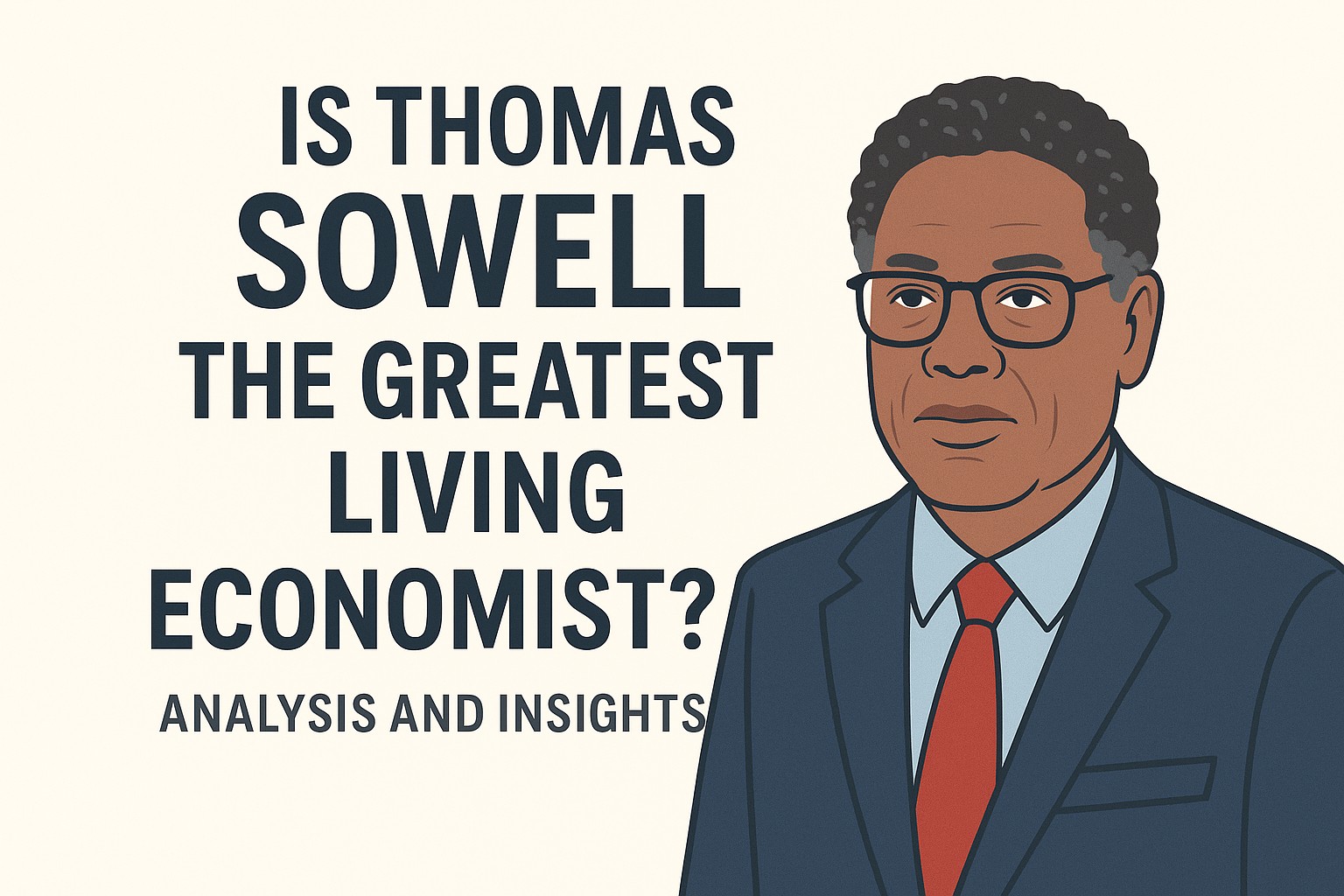The Sowell Question
Is Thomas Sowell the greatest living economist? This question sparks intense debate. This analysis provides an interactive framework to explore his core ideas, influence, and controversies, allowing you to form your own informed conclusion.

Core Economic Ideas
Sowell's work spans decades and is characterized by a focus on empirical evidence and a deep skepticism of grand, abstract theories. His major contributions often revolve around a few central themes. Click on each card to explore a key concept in his economic philosophy.
Basic Economics
Emphasis on scarcity and trade-offs as the fundamental economic problems.
Knowledge & Information
The dispersed nature of knowledge makes central planning inefficient.
Incentives & Consequences
Policies must be judged by their results, not their intentions.
Role of Culture & Human Capital
Cultural patterns and human capital are critical to economic outcomes.
Sphere of Influence
Sowell's impact is not confined to academic economics. His prolific writing has reached a broad audience, influencing public policy debates, conservative and libertarian thought, and public understanding of economics. This chart visualizes the relative impact of his work across different domains.
The Debates & Controversies
Sowell's clear, uncompromising style and heterodox conclusions have generated significant controversy. His arguments often challenge prevailing orthodoxies in both academia and public discourse. Below are some of the most prominent areas of debate surrounding his work.
Common Critiques
On Race and Disparities
Critics argue he downplays the role of systemic racism and structural barriers in explaining economic inequality, placing excessive emphasis on cultural factors and individual choices.
On Government Intervention
Opponents contend that his staunch free-market views lead him to dismiss or ignore instances where government intervention has successfully corrected market failures or improved social welfare.
On Intellectuals and Experts
His sharp critiques of "the anointed" are seen by some as anti-intellectual, fostering a general distrust of academic expertise and data-driven policy-making that doesn't align with his conclusions.
Sowell's Position
Empirical Analysis over Systemic Theories
Sowell counters that his conclusions are based on global, historical data showing that no group has ever been equally represented everywhere. He argues "cosmic justice" is an illusion and that focusing on human capital provides a more powerful explanation for disparities.
Unintended Consequences
He would argue that he doesn't reject intervention out of dogma, but because his empirical analysis shows that interventions like minimum wage laws and rent control often harm the very people they are intended to help by distorting incentives.
The "Vision of the Anointed"
His critique is not of expertise itself, but of a specific "vision" held by some intellectuals who propose sweeping solutions without accountability for their failures, ignoring evidence that contradicts their pre-conceived notions.
Standing in the Field
Assessing Sowell's rank among economists is complex. While highly esteemed in some circles, he is less frequently cited in top-tier academic journals than other economists of his stature. His influence is arguably greater in public discourse and policy circles than in theoretical economics. This chart illustrates the spectrum of opinion on his contributions.
The Distinctive Sowell Method
What sets Sowell apart is not just his conclusions, but his consistent methodological approach to economic and social questions. His process emphasizes clarity, evidence, and a deep respect for the complexity of human societies. Hover over each step to learn more about his approach.
Evidence
Analysis
Incentives
Language
Conclusion: A Matter of Definition
So, is Thomas Sowell the "greatest"? The answer depends on the criteria. If "greatness" is measured by seminal theoretical models or Nobel Prizes, perhaps not. But if it is measured by the clarity of explanation, the relentless application of economic principles to real-world problems, and the sheer breadth and volume of influential work outside the academic bubble, he is undeniably one of the most significant economic thinkers of the past century. His legacy lies not in complex equations, but in his unwavering effort to make the logic of economics accessible to all.